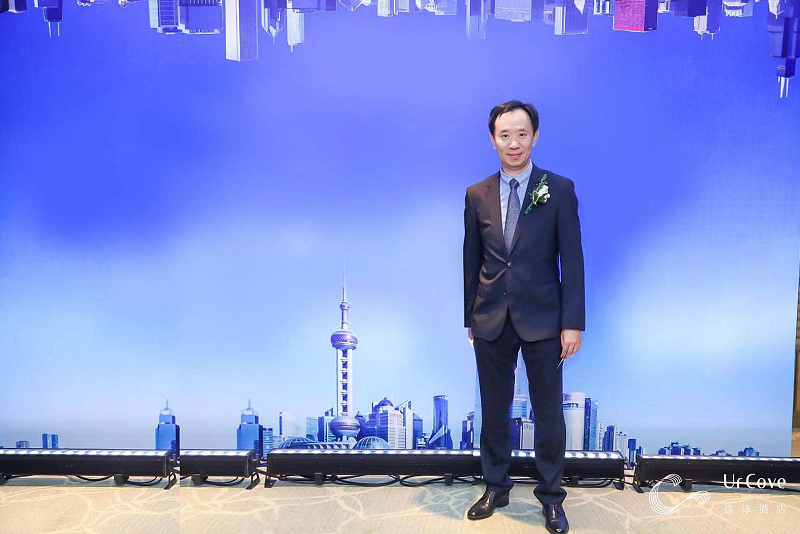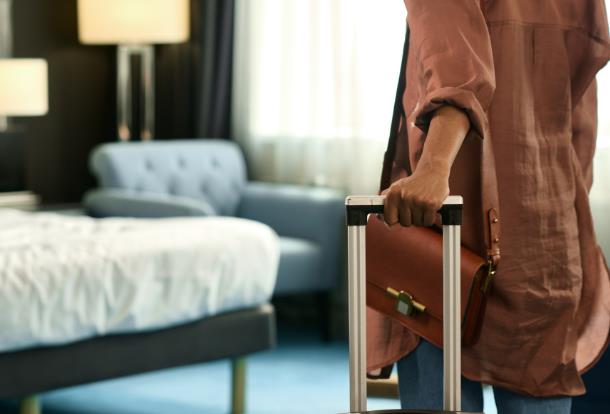
ChinaTravelNews, Ritesh Gupta – BTG Homeinns Hotels Group plans to expand the usage of their own digital assets to step up revenue generation from not only room booking and hotel-related ancillary revenue, but also from non-travel e-commerce products in 2022.
“We have 130 million members (in our loyalty programme), we have around 40 million app downloads and 15 million WeChat followers,” shared Heinz Xu, General Manager of Sales and Loyalty Program, BTG Hotels, who added that going forward the group intends to focus on its own customer-facing initiatives, be it for the app or the loyalty programme.

Heinz Xu, General Manager of Sales and Loyalty Program, BTG Hotels
“We have different key performance indicators (KPIs) for our app. One of them is related to the app download – we intend to increase it by 5-6 million in 2022. Another one is the conversion rate – our goal is to increase it by 5%,” Xu told ChinaTravelNews.com in an interview. BTG Homeinns runs about 6,000 hotels in over 500 cities in China.
The team at BTG Homeinns is looking at the app as well as the group’s loyalty programme to gain a deeper understanding of guests' needs.
The group is moving away from broad 5-10 customer segments, which are based on basic demographics, reasons to travel and frequency of travel to micro-segmentation and personalized interactions. A major and ongoing initiative is to strengthen the app usage, and to understand the user is going to be a major agenda in 2022, said Xu.
Elaborating further on customer segmentation, Xu said, “It is a huge project (referring to moving away from macro segmentation and making progress toward micro segmentation and eventually reaching the level of knowing each customer i. e. true personalization). It is a complex journey, not that easy to evaluate. But what I can say is that we have segregated our users into 10-20 groups as of today. These could be – a group which had stayed with us prior to the last year and they couldn’t come last year, or a group that hasn’t visited our app for the past three months…so depending on this grouping, each user will have a different message when they open their app. And they will get different benefits.”
And for frequent visitors to BTG Homeinns’ properties, the hotel company can serve them with options such as double your points for their next stay. So essentially the content, messaging and promotion vary as per the association with the app, the brand etc.
Non-travel ancillary products
A logical extension of targeted offers is an array of products to choose from.
“We are working on our non-travel products category. In addition to our own hotel food and beverage options that can be ordered from the app, we also have an e-commerce store, featuring certain products. For the remainder of this year and for the next year, too, we are going to be strengthening the portfolio of products that we offer, for instance, we are offering a new category - Tariff-Free products from mid-December - via our app and the applet on WeChat. The Tariff-Free products have been listed under the `Global Purchase’ section of our app,” said Xu.
“We are looking at expanding SKUs (stock keeping units) by three times in the Duty-Free range by mid-January next year,” Xu told ChinaTravelNews.com.
The team at BTG Hotels has also worked out activation of QR Codes within its properties to promote shopping for Tariff-Free products. “So when a guest comes to our property and at the time of check-in the front desk staff interacts with the guest, conveying them the option to buy these products from their app. And it also ends up as an attractive reason to download the app for those who didn’t have the app in their mobile phones,” shared Xu.
The Tariff-Free quota for Chinese citizens is capped at RMB 26,000 per year per person. This decision to expand the basket of offerings by BTG Homeinns is targeted at those travellers who have high affinity for overseas quality goods, but they can’t shop since they are unable to travel abroad due to the Covid-19 pandemic. “So yes, we are trying to capitalize on the government cross-border e-commerce policies on tariff-free shopping and since Chinese consumers are fond of doing so, we hope they will grab this option and we will fulfill the orders,” acknowledged Xu.
Partnering 3rd party ecosystems for commerce and data
Xu mentioned that the hotel company’s own customer relationship management or CRM system and infrastructure is in place.
“We do intend to partner with Tencent, Alibaba, China Mobile etc. We can capitalize on what they will offer. But our first priority is to well operate our own platforms, which is to leverage our own CRM or customer relationship management system – how to have more active members in our loyalty program and how to ensure there is more repeat purchase from them,” concluded Xu.




